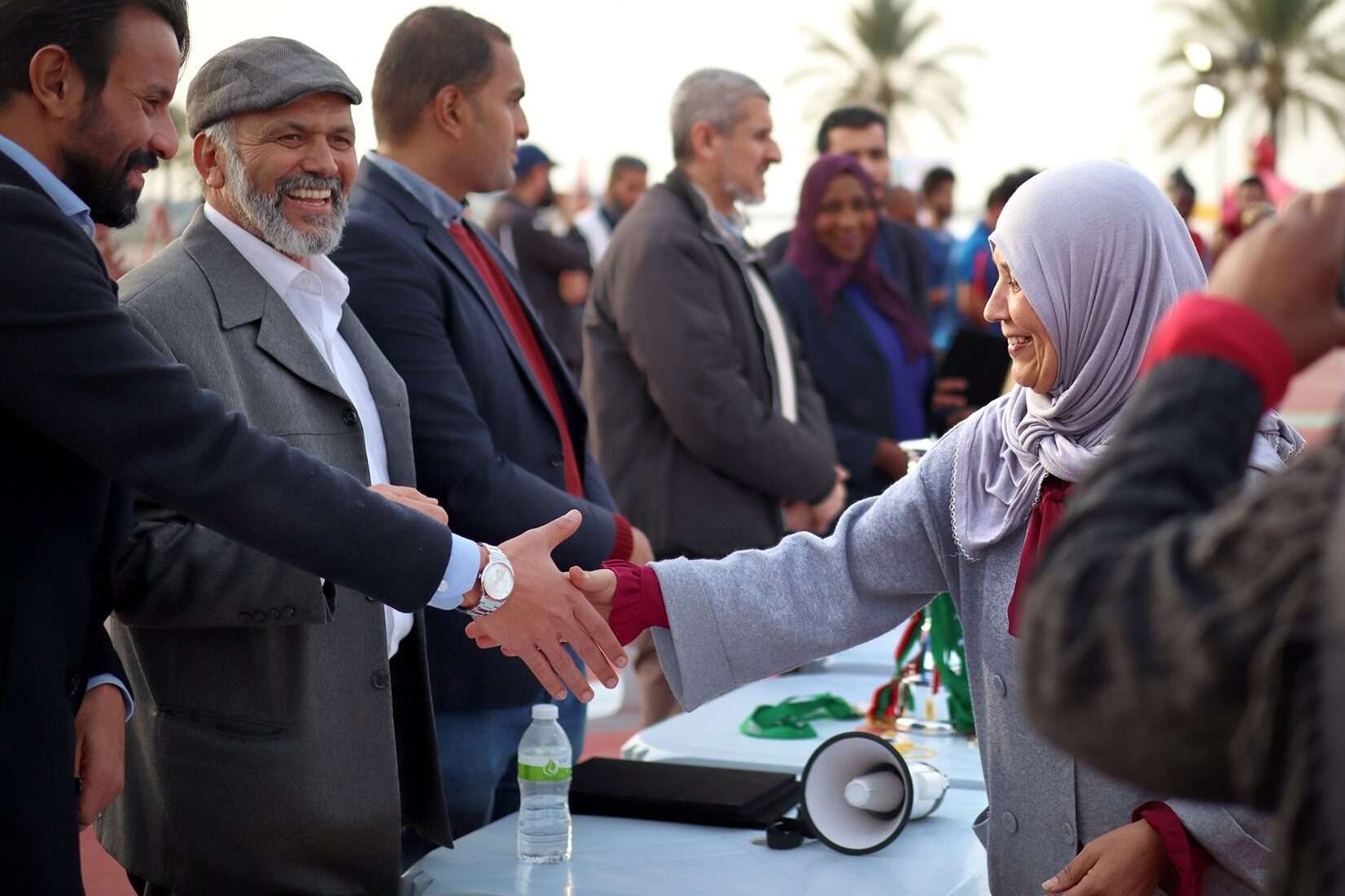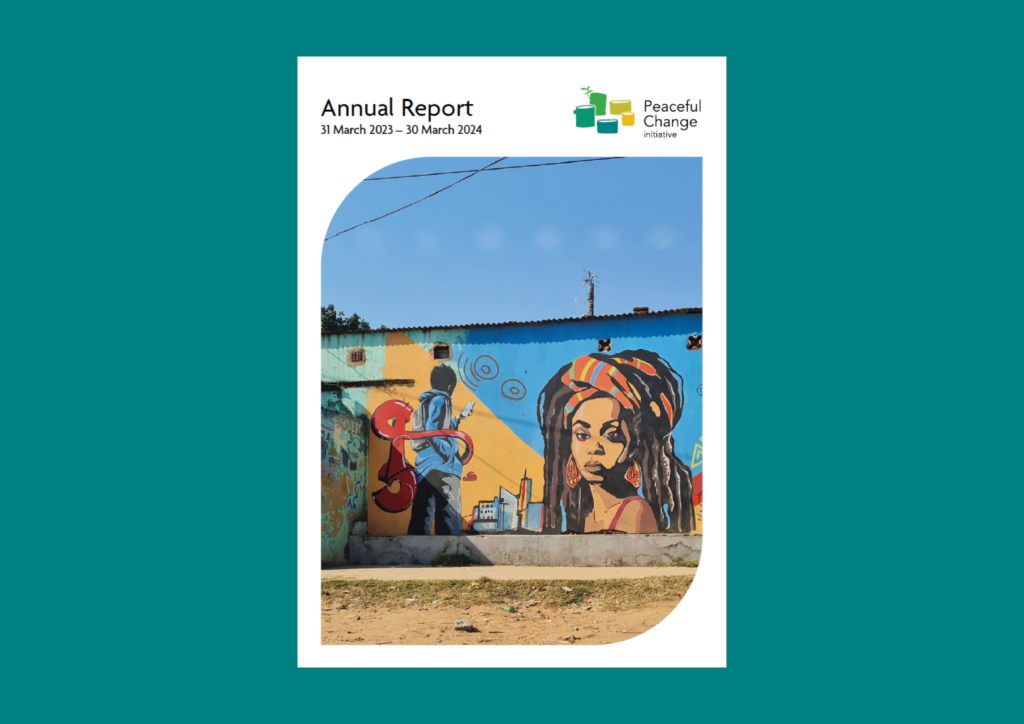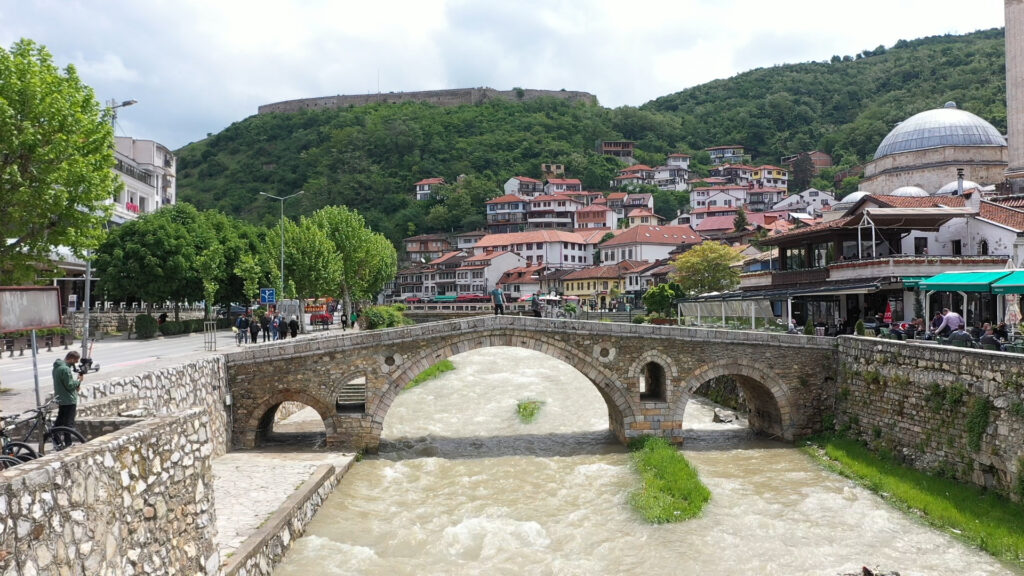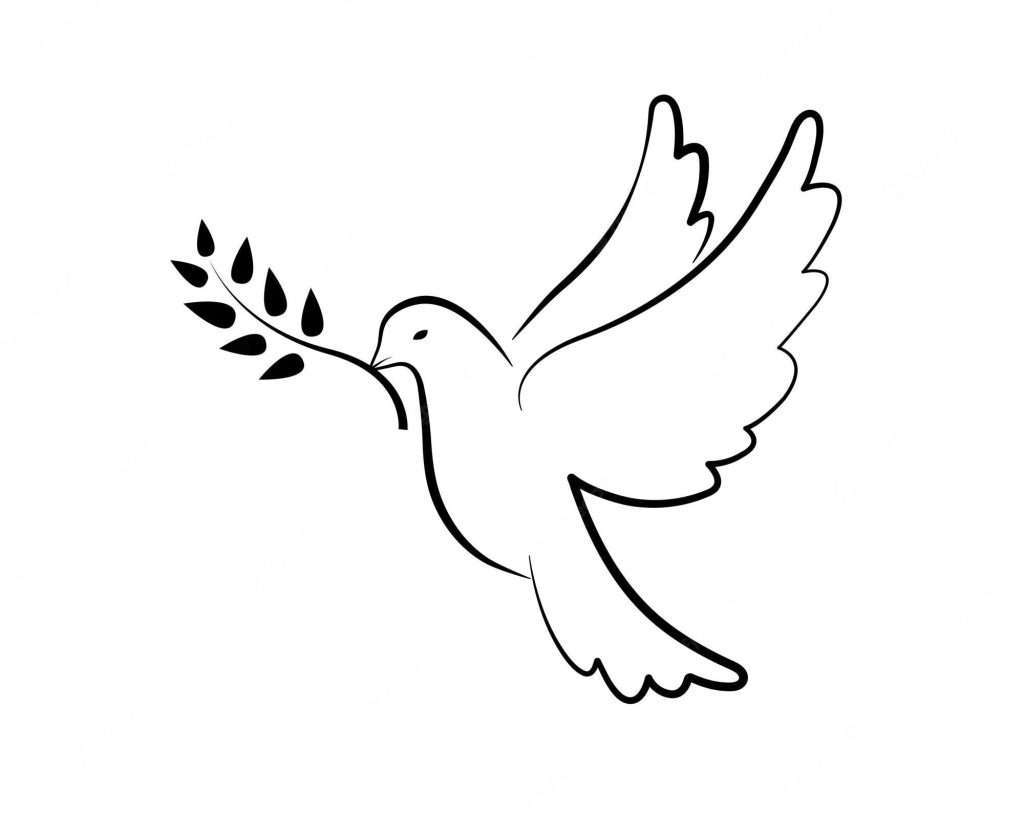
As a result of escalating civil and political unrest, “peacefulness” deteriorated for the third consecutive year, according to the Global Peace Index. Two billion people live in conflict-affected areas around the world due to ongoing and new conflict outbreaks. Further, conflict and violence have displaced an estimated 84 million people.
Peaceful Change initiative works on programmes in North Africa, Europe, the South Caucasus region, and more recently in Mozambique. We are witness to the deterioration of peace and the need for peacebuilding in these contexts.
For example, in Europe, due to the Russian invasion of Ukraine in February 2022, one in four Ukrainians are now either out of the country or displaced within its borders. The number of refugees from Ukraine seeking safety and support is just under the eight million mark.
In Mozambique, the armed conflict in Cabo Delgado affects thousands of families. More than one million people have been internally displaced due to violence perpetrated by non-state armed groups. The severe food shortage, a direct impact of the climate crisis, which is gravely affecting Mozambique, has worsened this conflict.
But, in the darkness there is light. After 10 years of working alongside others to build peace in Libya, we can see the positive impact of peacebuilding first hand. In 2022, the country recorded the largest increase in peacefulness in the North African region and the largest improvement globally.
Building peace means encouraging better, more inclusive governance, strengthening, and supporting social cohesion, resilience, and trust within and between communities. The work of peacebuilders is critical to breaking the cycles of violent conflict and building the institutions and relationships that support long-term and sustainable peace.
As we look back at 2022, we are proud of the work of peacebuilders everywhere. This has been a year marked by achievements and challenges for Peaceful Change initiative, which you can read more about in our Annual Report. Here, we want to highlight a few of the lessons we have learned through building peace in 2022.
Integrating gender into community-level peacebuilding is not a linear process
Since 2013, Peaceful Change initiative has been supporting community-level peacebuilding initiatives in more than 40 Libyan municipalities. Last year, we launched a report which captures our experience and lessons learned from nearly 10 years of integrating gender into our peacebuilding programme in Libya. Some of the key lessons learned are highlighted below.
Talking about gender in context-sensitive ways through approaches co-designed with Libyan project participants and partners is key. In practice, this means, for example, using cultural and religious references and role models to make the case for women’s participation and leadership.
Working with both men and women ensures community buy-in, support from men who act as ‘allies’, and mitigates potential risks arising from challenging social and gender norms. Additionally, providing opportunities and support to women, with grants and training for example, to strengthen and practice leadership skills is key to increasing their participation, confidence and visibility.
Our gender mainstreaming approach has been successful in increasing the number of women participating in project activities, improving the quality of their participation, and ensuring the representation of women from a diverse range of backgrounds.
Progress, however, has not been linear; whenever a crisis occurs we see setbacks in women’s participation. Additionally, projects designed and carried out by women are not always transformative with regards to gender roles. Building on the learning we have gathered to date we will continue to integrate gender into our peacebuilding programmes in Libya.
Solidarity can be forged even in times of high tensions
Through 2022, Peaceful Change initiative’s Western Balkans team has been working with a diverse group of civil society organisations from Kosovo and Serbia in order to develop a Rapid Response Mechanism capable of reacting to instances of divisive rhetoric or destabilising incidents which can negatively affect relations within and between communities.
By sharing perspectives on specific issues, the mechanism has helped deepen understanding about the sources of grievance within particularly communities, whilst reducing the scope for a lack of awareness or misinformation.
Additionally, the joint stances developed and adopted by the group demonstrate how solidarity can be forged even in times of high tensions. Some examples of such solidarity include a call for new constructive voices and an expression of profound concern about the impact of a lack of progress in the Belgrade-Pristina dialogue on local communities.
Conflict sensitive aid is paramount in Northern Mozambique
In late 2022, we visited Mozambique for the first time, at the request of one of our partners in the humanitarian and development sector. Visiting the conflict-affected Cabo Delgado region gave us first-hand experience of the difficult and complex situations that international organisations there must navigate when delivering aid, and the vital importance of a conflict-sensitive approach.
Many humanitarian and development organisations have been working in northern Mozambique for decades, but in recent years have found themselves working amid a fast-moving and unpredictable security situation. We have been working to generate a conflict analysis, including an assessment of conflict-related risks that aid agencies may encounter, and strategies they can take to mitigate these risks.
We are providing conflict sensitivity training and guidance, as well as guidance on adapting aid programmes so that they can measurably contribute to better social cohesion. We will look to expand this work in 2023 to meet a growing demand.
Ukrainian civil society inspires action amidst tragedy
Peaceful Change initiative last worked in Ukraine in 2019, before the COVID-19 pandemic, working with communities in Kherson and Donetsk who today find themselves at the frontline of the war or in areas under occupation. At the time we took great inspiration from the participants in our work, for their determination to contribute to building a democratic post-Maidan Ukraine and to their preparedness to transcend differences and seek to understand compatriots with different views about the past, the present, and the future. Their painstaking efforts to rebuild relationships after the military violence of 2014 took a definitive setback with the Russian invasion of 24 February 2022. This is in addition to the incalculable loss of life and physical destruction that we see every day.
Our Ukrainian partners, remain an inspiration re-affirming again their commitment to build a united country, at the foundations of which will be an active civil society that brings represents and serves all parts of its community also applying the skills and values of peacebuilding.
We will join efforts with our partners in 2023, working on social cohesion issues in some of the communities that, while untouched by the military invasion, have been at the forefront of upheaval as a result of the war. Peaceful Change initiative will also work to develop models of engaging citizens for inclusive recovery in those places that have felt the full brunt of Russia’s assault.
Looking ahead to 2023
Looking ahead to 2023, we will continue to ensure our peacebuilding work is locally driven as we expand our Conflict Sensitivity work to Southern and Eastern Africa region. We also aim to support civil society and peacebuilders across Europe and South Caucasus region to address the heightened risks and vulnerabilities in the wake of the Russian war in Ukraine.
Above all, we want to thank the organisations we work with, our team and our funders, without which our peacebuilding work is not possible.



